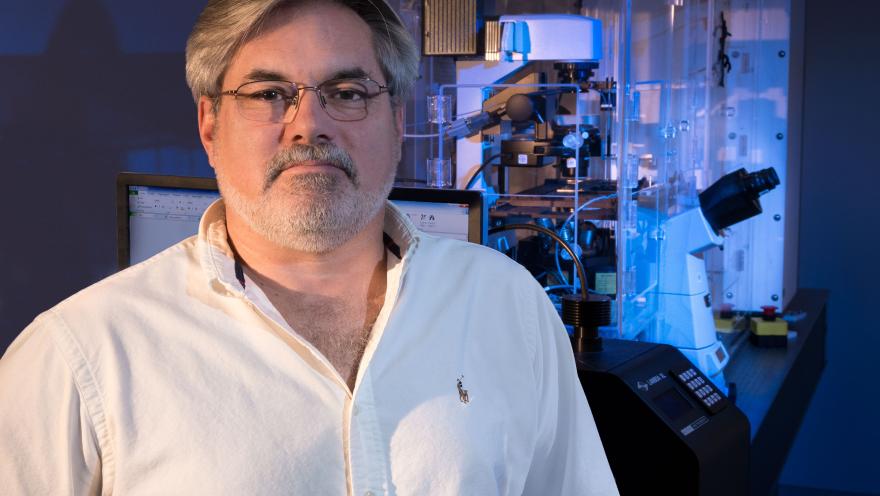Dr. Steven Finkbeiner of the Gladstone Institutes recently announced a research partnership with Eli Lilly and Company to move his ALS research forward. Dr. Finkbeiner is a member of California-based Neuro Collaborative, an ALS Association-funded initiative focused on discovering new ALS therapeutics and moving them into clinical trials. This multi-year, milestone-driven project is using innovative robotic microscope technology to focus on better understanding neurodegenerative diseases, with a large focus on ALS.
The ALS Association has supported Dr. Finkbeiner’s Neuro Collaborative project since 2014, soon after the ALS Ice Bucket Challenge, which made funding this important initiative possible. Founded by The ALS Association National and Golden West Chapter, the Neuro Collaborative has been proven as an ALS research machine driving potential therapeutics into clinical trials.
Partnerships with pharmaceutical companies, like Eli Lilly and Company, are key in leveraging pharma expertise in drug development that is lacking in academic laboratories. This partnership adds to the success of Dr. Finkbeiner’s partnership with Biogen, which is aimed at discovering novel ALS drugs targeting autophagy, a type of cell degradation system that goes awry during disease.
“The support for the Neuro Collaborative from The ALS Association has allowed us to approach therapeutics development for ALS with an urgency and at a scale that we could never do before,” says Dr. Finkbeiner. “It enables us to greatly accelerate the work, and make unexpected and promising new discoveries.”
Dr. Finkbeiner’s laboratory uses a one-of-a-kind, revolutionary Brain Bot screening microscopy system that can monitor thousands of individual cells continuously over many months. It is designed to automatically track individual cell health over time using cutting-edge statistics.
For the ALS project, the team mainly focuses on motor neurons, which are the cells that die in ALS. Motor neuron death results in their lost connection with muscles, ultimately leading to muscle atrophy and eventually paralysis.
The Brain Bot is carrying out large compound screens on motor neurons derived from people living with ALS, with the goal to discover new potential ALS drugs. While monitoring motor neuron health, they are specifically looking for compounds that improve health and survival. Once identified, a drug will be validated using other model systems with the ultimate goal of moving the drug into human clinical trials.
Importantly, Dr. Finkbeiner’s accomplishments in ALS research have great potential to extend to other neurodegenerative diseases sharing common disease pathways, like Alzheimer’s disease and Huntington’s disease.
Each Brain Bot costs approximately $1 million to construct, plus there are additional costs for scientists to run and maintain the state-of-the-art microscope. Please donate today to support Dr. Finkbeiner’s work to discover more potential ALS compounds through the Neuro Collaborative. The more compounds identified, the closer researchers are to harnessing effective treatments and a cure for ALS.


Join the conversation. Please comment below.